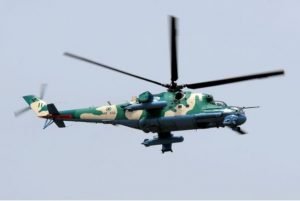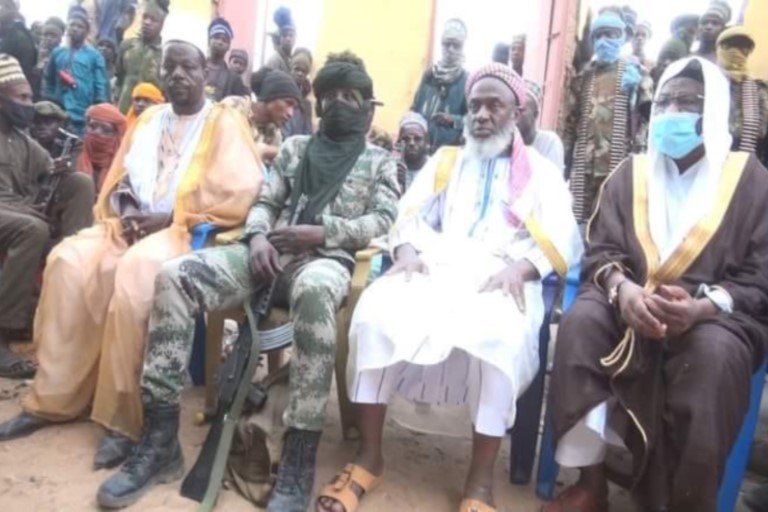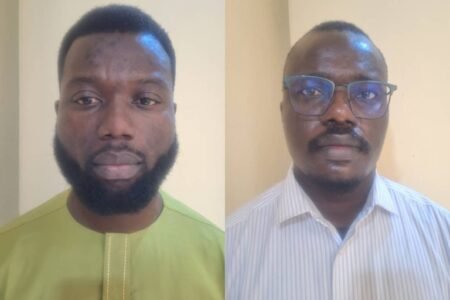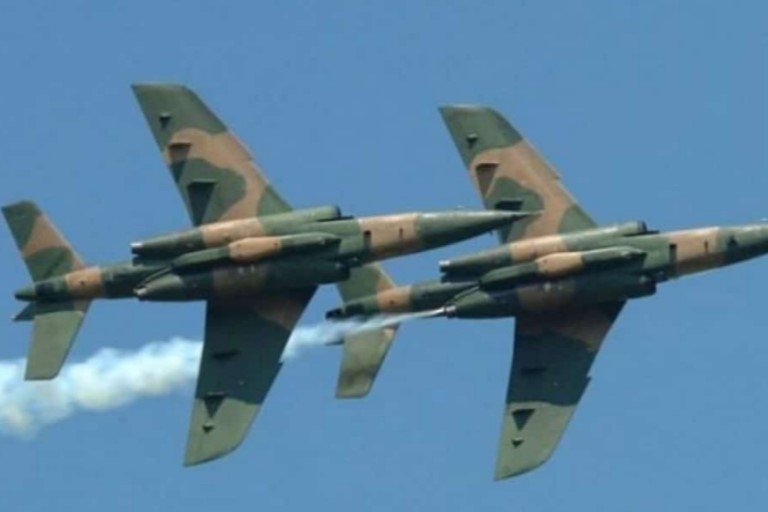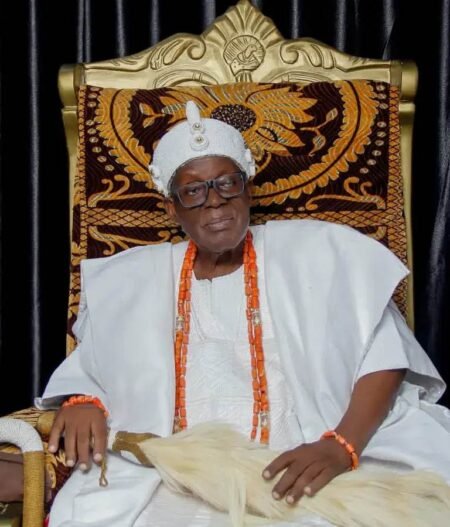By Orisha
Recently, there’s a been a growing call to name Bandits as Terrorists. This was particularly highlighted by the proscription of the group, IPOB (Indigenous People of Biafra) by the federal government. Some view this group as a self determination group and believe the proscription was an anti-ethnic initiative to silence the clamour for secession. Further, increasingly heightened insecurity challenges and atrocities by the ‘novel’ Bandit groups seems to justify the sentiments of bias that many believe was existing in the Federal Government.
Matters came to a head for many when bandits were seen to be receiving patronage and support from a particular cleric, Sheikh Gumi, and the impression that he was not cautioned proliferated social spaces. The bandits also secured sophisticated weapons and escalated the scope of their activities; kidnappings, armed robbery, killings, attacks on military installations etc. were becoming far too regular occurrences. In fact, recently, there was a report from the popular Economist publication which appeared to corroborate the concerns of many.
All these events increased the agitations for the federal government to declare bandits as terrorists. Many concerned, objective and apolitical Nigerians were increasingly swayed towards the trending opinion that there was a mollycoddling of the criminals and an unfair treatment of the proscribed IPOB group. These concerns compelled this writer to undertake a review of these matters of national interest.
Leaning on the homily from the popular Sound of Music movie, lets start at the very beginning, a very good place to start.
Who is a bandit? According to Oxford languages (off Google), a bandit can be described as a robber or outlaw belonging to a gang and typically operating in an isolated or lawless area. Banditry is a type of organized crime committed by outlaws typically involving the threat or use of violence. According to the Premium Times article of September 12, 2021 (Banditry: Residents of NorthWest States reluctantly embrace stringent measures as governors unite) In Nigeria, the crimes are listed as kidnapping, cattle rustling, mass abductions, arson and even armed robbery
Also, who is a terrorist? Same source provided the following; a person who uses unlawful violence and intimidation, especially against civilians, in the pursuit of political aims.
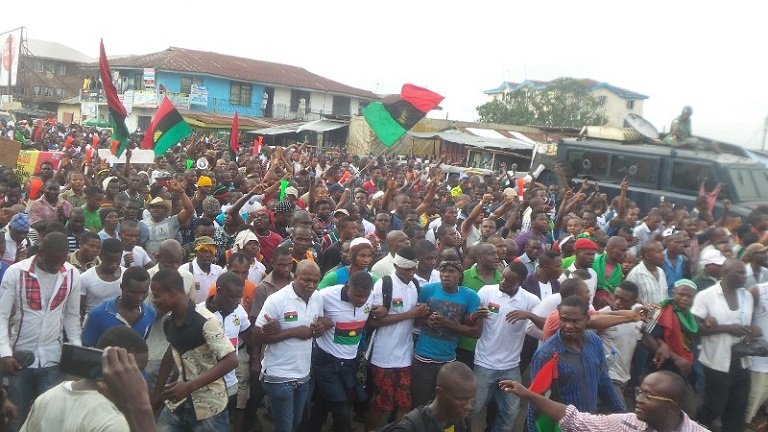
The Federal Bureau of Investigations (FBI) further categorizes and defines terrorism as either international (violent, criminal acts committed by individuals and/or groups who are inspired by, or associated with, designated foreign terrorist organizations or nations (state sponsored)) or domestic (violent , criminal acts committed by individuals and/or groups to further ideological goals stemming from domestic influences such as those of a political, religious, social, racial or environmental nature) (source: fbi.gov/investigate/terrorism)
From the two definitions above, a couple of things become a little clearer. There are similarities and differences between the appellations.
Similarities. They are both criminal activities. They are carried out by individuals and/gangs. Both have core objectives that represent their raison d’etre. Thusly, the purpose of their being should provide insight into the personalities of the insidious individuals and groups at the heart of these activities.
All reports on the activities of bandits indicate that they are robbers who pursue criminal ventures principally for commercial and concupiscent gains. The definitions above appear to be right on the money in this instance. The scale and scope of atrocities appears only limited by the resources and opportunities the bandits can muster. However, the over-arching objective remains unchanged; acquire wealth illegally.

Terrorists on the other hand appear to be driven by values much bigger than just mere self-aggrandizement. Whilst they perpetuate similar nefarious acts to varying degrees as bandits, they are driven by an ideology, a political/religious/tribal/social cause that they believe in beyond their personal self-preservation or aggrandizement. They, unlike bandits, are willing to lay down their lives for this cause as they believe it is the only thing that gives their lives meaning. This probably explains why the reference as fundamentalists apply: they are consumed by the fundamental core of their ideology and cause without regard to life, progress or posterity.
Obviously, one group is more dangerous than the other and represents a fiercer beast to tame or eliminate.
Nigeria is no stranger to terrorists and terrorist activities. Boko Haram made a shattering debut into our collective national consciousness and left an indelible mark and wound we are still licking till date. Formed in 2002, its increased radicalisation led to the killing of its leader, Mohammed Yusuf in July 2009. In September 2010, the group experienced a resurgence with a prison break in Bauchi. It finally announced itself on the global stage on August 26, 2011, with a vehicle-bomb attack on UN headquarters in Abuja, killing at least 23 people and injuring more than 80 (source: https://www.dni.gov/nctc/groups/boko_haram). Since this period, the country has been in a state of total war against the insurgents. The group was proscribed in May 2013. Recently, mercifully, with the upgrade and improved resources afforded the military, the country has been able to win back territories previously under their control and dealt sufficient damage and decimation to instigate mass surrender and fleeing.
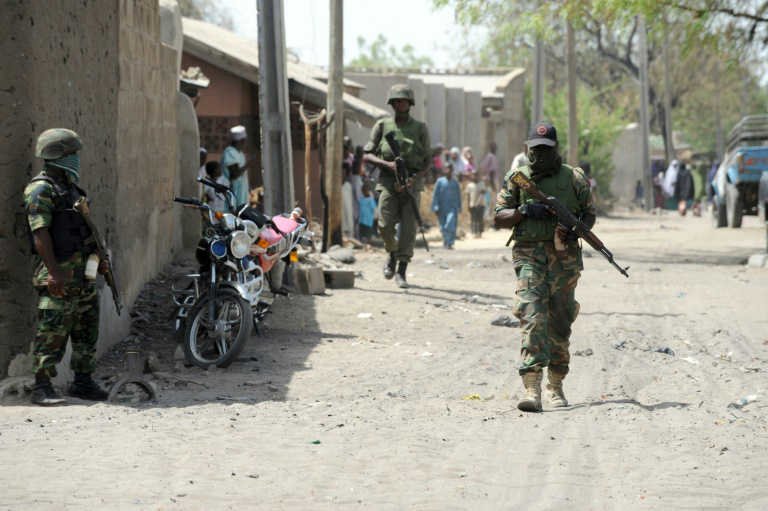
A good question to ask at this point is, is IPOB a terrorist group? The group was proscribed on September 20, 2017, by order of Justice Kafarati thus designating the group as a terrorist group upon an ex parte application by the Attorney General of the Federation and Minister of Justice, Mr. Abubakar Malami (SAN). The judgment was contested on the merit of jurisdiction, but the courts ruled that since the entity was registered elsewhere, it is a legal entity, much like a foreigner in Nigeria which can be lawfully arrested if found to have breached the country’s laws. This judgment was upheld severally on appeal. It is interesting to note that the proscription of IPOB and its activities was first advanced by the governors of the South-eastern states.
So, why was IPOB proscribed? The group was initially based on advancing the cause of self-determination by the Igbo people in core South-eastern Nigeria who were bent on the realization of the defunct Biafra republic. Led by Mr. Nnamdi Kanu, the group started launching vitriolic assaults against the Nigerian state to promote hate, division, and public unrest. Based on the experience gained from the Boko Haram debacle, the FG moved quickly to diffuse the situation by arresting the leader of the group through the Department of State Services on 19 October 2015. This led to violent protests by the supporters which resulted in clashes with the police, most notably on 2 December 2015 in Onitsha, Anambra State where 9 protesters and 2 policemen were killed. Following this, several clashes with policemen in Aba, Onitsha, Enugu and Umuhahia. The group continued attacking federal installations and fomenting public unrest which led to the proscription of the group by the governors of the South-eastern states (Imo, Ebonyi, Anambra, Enugu and Abia).
The reader should please note that the group represented sufficient cause for concern governors of these states to take an action on the matter. The federal government followed suit subsequently.
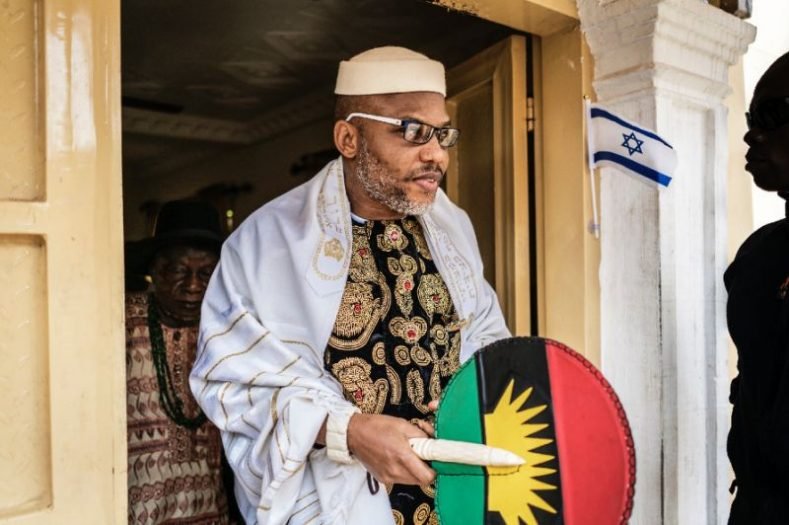
IPOB has all the classical elements of a terrorist group; the use of violence to promote and attempt to force through a cause fuelled by political and ethnic ideologies. Their public actions were advertised as not for self-aggrandizement (although later records and discord from the group seems to suggest that the leaders were using the movement for self-enrichment). They have over time replicated the actions of Boko Haram (attack on federal installations, attacks on citizens, jail breaks to free prisoners etc.)
From the submissions above, bandits are criminals. But they are not terrorists. Also, terrorists commit similar crimes to bandits, but they are set apart by the fundamentals of their cause and ideology. Thusly, a free ranging criminal without an ideological cause rooted in politics, religion or social, racial (ethnic) or environmental concerns cannot be termed a terrorist. Naming groups willy-nilly without recourse to proper definition will create even greater confusion that may outlast the originating cause of the issue.
Further, let us review the issues consequent to the arbitrary naming of bandits as terrorists.
Firstly, there is no basis. Whilst they are undoubtedly criminals and enemies of the Nigerian state, they lack the fundamentals to premise and drive such an action. OK, let’s say they have a name and a leader, what are their political, religious, social, racial (ethnic) or environmental causes? What ideology, beyond self-enrichment and the pursuit of pleasures do they have? Basically, naming bandits as terrorists is same as trying to build a legality on an illegality. Our laws have sufficient provisions for the administration of criminal jurisprudence without the need to create a legal confusion with much graver consequences.
Secondly, one of the inevitable consequences is that the law will become vindictive. If the premise is sentimental, a precedence would have been established for the arbitrary proscription as terrorists of any and every criminal (or dissenting) group in the country without regard for the justifying actions or premise to warrant same. This means that any government can just name a group as terrorists just to bring the full military might of the country against them.
This brings me to the third reason. Bandits are not militarized groups. They are armed criminals. But they are not terrorists. This distinction is important because it the case of being terrorists cannot be established against these bandits, any act of justice premised on the same becomes moot and an abuse of power. Deploying the Military against armed individuals that the state has unilaterally labelled terrorists without any corroborating evidence could potentially drag the commanders overseeing those activities to the International Court of Justice (ICJ) at the Hague for human rights abuses and extrajudicial killings. Our newly acquired military resources and armaments, the envy of the rest of Africa, which were celebrated with gusto will be tainted with cries of massacres. Essentially, such a poorly thought through move would criminalise our military elites and sacrifice them on the altar of gaslighting and sentiments.
Fourthly, calling bandits terrorists will provide a legal loophole for actual terrorists; they can claim to be no more than bandits and that their proscription or the heavy engagements against them by the military is an unjustified overkill.
Finally, wrongful appellation could make the bandits more desperate. Recall that the bandit’s objective is to ‘chop the good life’ from the proceeds of his crime. At his heart, the law of self-preservation still has meaning and significance. For the terrorist, that ship has sailed. Thus, wrong appellation stands the risk of cornering the beasts and transmuting bandits into terrorists (since they don’t feel they have anything to lose again). This fully exposes the counter intuitiveness of the whole misguided venture; we would be swelling the ranks of terrorist groups with hardened criminals.
Those advocating for the naming of bandits as terrorists have either not thought it through or are wilfully mischievous for selfish gains. The proscription of IPOB, rightly so, should not form a justification to through reason to the wind. In all sincerity, those who are sympathetic to the cause of IPOB would do better to rein in the group on its violent actions and divisive rhetoric and help them to position as a progressive group fighting for the rights of the Igbo ethnicity. These two objectives are not mutually exclusive. In fact, they are symbiotic in their desire to fight for the rights of the people. One cannot claim to be fighting for the cause of a group and at the same time be oppressing them and exposing them to hardship, chaos and violence.
It is the earnest desires and prayers of this writer that peace will reign in the country and we can all relive and revisit the times when we could travel across the country, by land, rivers or air, in relative peace. It would be great for us to rediscover the harmony and brotherhood that stands us out globally as Africa and the black man’s hope for global redemption. Let us jettison the foolish narratives of those who only seek to satiate the gods of the bellies or who thrive in chaos and confusion. Above all, we need to allow the benefits of our education and exposure to speak for us. Naming bandits as terrorists is not a magic wand that will automatically decimate their ranks; it is a Pandora’s box from which the fates will serenade a looming apocalypse.
Orisha writes from Maryland, US
